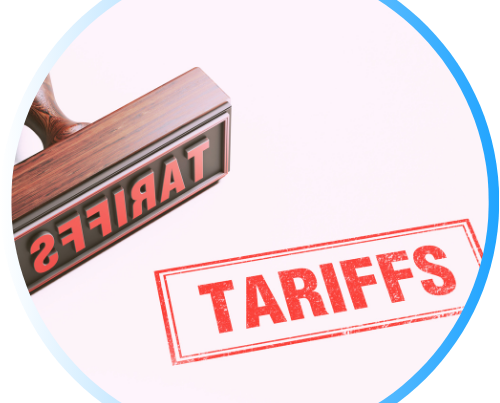Rate Related Update and Market Conditions
Market Conditions
TPEB (Trans-Pacific Eastbound)
-
April demand has shown an improvement over March, with increased cargo volumes supporting stronger liftings. Spot rates have risen following the successful implementation of the April General Rate Increase (GRI). The Peak Season Surcharge (PSS) remains suspended, contributing to more stable contracted volumes through the month.
FEWB (Far East Westbound)
-
Freight rates on the Far East Westbound lane remain steady, as market conditions are still defined by excess capacity and limited cargo availability. Although some short-term demand fluctuations may occur due to seasonal holidays and pre-tariff activity, no major pricing shifts are anticipated in the near term.
TAWB (Trans-Atlantic Westbound)
-
On the Trans-Atlantic Westbound route, planned surcharges for Southern European exports have been delayed by some carriers to mid-April or later, while PSS for North Europe has been withdrawn altogether. Weak demand in the East Mediterranean continues to hold off any new rate adjustments in that region.
Operational Updates
TPEB:
-
Equipment availability across key origin locations remains stable, with sufficient supply reported at most gateways. No widespread shortages are anticipated in the short term.
FEWB:
-
A moderate slowdown in shipping demand is expected due to the Qingming Festival and upcoming Labor Day holidays, which are causing temporary factory shutdowns. Operationally, no major equipment concerns have been reported at origin.
TAWB:
-
Central Europe continues to face notable equipment challenges, particularly in inland regions such as Austria, Hungary, Slovakia, Switzerland, and southern Germany. Mersin is now beginning to experience similar shortages. Carrier haulage remains the advised solution in these areas.
Capacity Management
TPEB:
-
April capacity levels remain comparable to March, with some blank sailings applied on East Coast and Pacific Southwest services. Despite this, space remains sufficient to handle current demand levels.
FEWB:
-
The first half of April saw a minor capacity tightening as additional blank sailings were introduced, particularly from the Gemini Cooperation. However, deployment has since rebounded, with overall available space exceeding 310,000 TEUs in the latter half of the month.
TAWB:
-
Blank sailings continue in April, largely concentrated in Southern Europe due to ongoing congestion and vessel schedule disruptions. These cancellations are part of broader efforts to manage service consistency across impacted ports.
Sources: xeneta.com, maersk.com, yangming.com, evergreen-line.com, supplychaindive.com
U.S.-China Trade Tensions Escalate with Reciprocal Tariff Measures
The U.S. and China have both introduced significant new tariffs, with China announcing a 34% increase on American imports in response to recent U.S. tariff actions. U.S. agricultural exporters are expected to be particularly impacted. Analysts warn that rising trade barriers between the world’s two largest economies could cause global supply chain disruptions and increase costs for businesses and consumers across sectors.


U.S. Confirms 10% Base Tariff on All Imports, Higher Rates for Select Countries
President Trump has announced a new 10% tariff to be applied across all imports into the United States, with higher duties planned for countries considered to have unbalanced trade relations. These “reciprocal” tariffs will reflect half the trade barriers those nations impose on U.S. goods. Implementation will occur in two phases between April 5 and April 9.
U.S. Reinstates Duties on Low-Value Chinese Imports, Air Cargo Sector Prepares
Starting May 2, the U.S. will end duty-free entry for low-value shipments from China and Hong Kong, affecting e-commerce imports. While this may ease pressure on air cargo capacity, logistics providers anticipate increased airport congestion as more shipments require full customs processing. The change aims to close regulatory gaps in cross-border trade compliance.


Panama Audit Could Delay BlackRock’s Global Port Acquisition
BlackRock’s acquisition of key port assets in Panama is facing delays as the Panamanian government conducts an audit of a 25-year concession held by CK Hutchison. The deal is part of a larger global ports transaction. Concerns raised by Panama’s Comptroller General could affect final approvals and potentially lead to legal complications, as scrutiny intensifies over Chinese-linked infrastructure projects in strategic locations.

